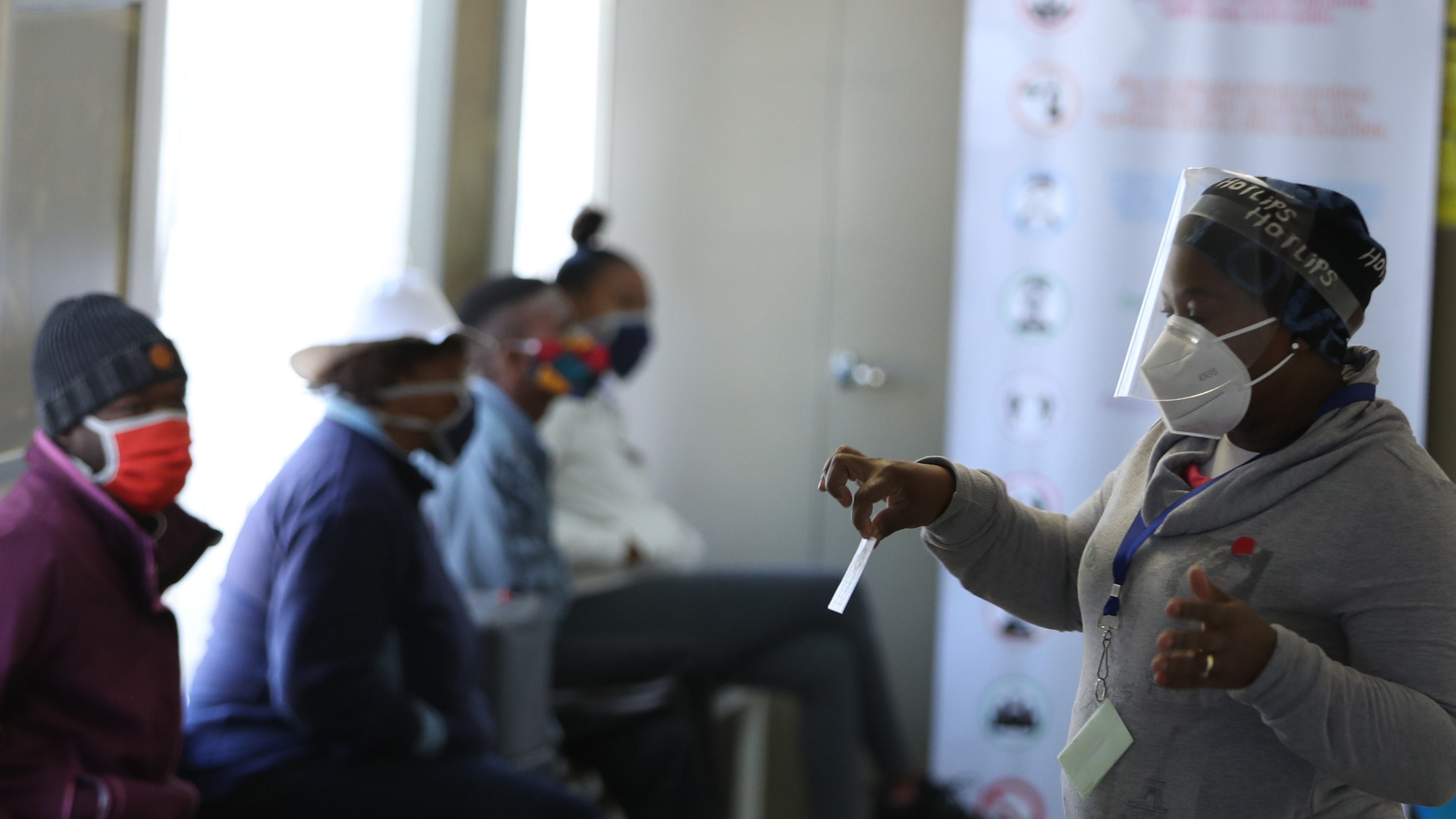Why South Africa has stopped using the Oxford vaccine - and what it means for UK
Rollout of jab paused amid doubts about effectiveness against new coronavirus variant

A free daily email with the biggest news stories of the day – and the best features from TheWeek.com
You are now subscribed
Your newsletter sign-up was successful
The rollout of the Oxford-AstraZeneca vaccine to healthcare workers in South Africa has been paused after a new study raised doubts about the efficacy of the jab in the country.
South Africa last week took delivery of a million doses of the Oxford vaccine as the government battles to contain a faster-spreading coronavirus strain first detected in December that now accounts for most of the country’s Covid cases.
However, the new research suggests that the UK-developed jab may do little to halt the new variant - triggering a last-minute rethink of South Africa’s vaccination campaign.
The Week
Escape your echo chamber. Get the facts behind the news, plus analysis from multiple perspectives.

Sign up for The Week's Free Newsletters
From our morning news briefing to a weekly Good News Newsletter, get the best of The Week delivered directly to your inbox.
From our morning news briefing to a weekly Good News Newsletter, get the best of The Week delivered directly to your inbox.
New enemy
Health Minister Zweli Mkhize said during an online briefing yesterday that the new Covid variant currently accounts for around 90% of new infections in South Africa, which has reported more than 46,000 Covid-19 deaths, according to latest data from John Hopkins University.
But hopes that the Oxford vaccine could help curb the outbreaks have been dealt a blow by the findings of research by the University of the Witwatersrand, Johannesburg. Trials involving around 2,000 people with a median age of 31 found that participants given the jab had only a 22% lower risk of developing mild-to-moderate Covid those those given a placebo.
The study is yet to undergo peer review and did not investigate the impact of the virus on severe infections, however. And none of the subjects who had the Oxford jab died or were hospitalised with Covid.
A free daily email with the biggest news stories of the day – and the best features from TheWeek.com
AstraZeneca has also criticised the study for being limited to predominantly young, healthy adults.
All the same, health boss Mkhize has said that distribution of the jab will be stopped “until the scientists give us clear indications as to what we need to do”.
Professor Shabir Madhi, who led the new study, said the results would “force us to recalibrate thinking about how to approach the pandemic virus”, shifting “the focus from the aspirational goal of herd immunity against transmission” towards the “protection of all at-risk individuals”.
The Financial Times reports that the South African government now intends to “accelerate” the rollout of the Janssen single-shot vaccine to health workers “after results showed that it offers strong protection” against the highly transmissible Covid strain.
The paper adds that the country has so far secured nine million doses of the Janssen jab and 20 million doses of Pfizer’s vaccine. “What will be available to the health workers will be those vaccines” in the coming weeks, Mkhize said.
What are the implications for the UK?
Experts and ministers in the UK have been quick to point of the limited nature of the research and the limited spread of the South African variant here.
Health Minister Edward Argar told the BBC’s Today programme this morning that just under 150 cases of the South African strain have been found in the UK, adding: “It’s still very much not the dominant strain.”
Meanwhile, Oxford University’s lead vaccine developer, Professor Sarah Gilbert, has told the BBC’s The Andrew Marr Show that while a modified version of the jab is being developed to combat the South Africa variant, the various Covid vaccines currently in use still provide protection “against deaths, hospitalisations and severe disease” against new strains of the coronavirus.
“That’s really important for healthcare systems - even if we are having mild and asymptomatic infections, to prevent people going into hospital with Covid would have a major effect,” she added.
Vaccines Minister Nadhim Zahawi has also emphasised the “vitally important” role of the jabs in “protecting the healthcare system”.
In an article for The Telegraph, Zahawi writes that “while it is right and necessary to prepare for the deployment of an updated vaccine, we can take confidence from the current rollout and the protection it will provide all of us against this terrible disease”.
BBC health correspondent Nick Triggle agrees that “we should be careful about rushing to judgement” about the Witwatersrand study findings.
The government has ramped up testing in areas where the variant has been reported. But in the meantime, the trial results coming out of South Africa show “once again illustrates how challenging the pandemic is”, Triggle says.
“It is not going to end with a Big Bang,” he adds. “But the progress the vaccines still offer is the route out.”
Joe Evans is the world news editor at TheWeek.co.uk. He joined the team in 2019 and held roles including deputy news editor and acting news editor before moving into his current position in early 2021. He is a regular panellist on The Week Unwrapped podcast, discussing politics and foreign affairs.
Before joining The Week, he worked as a freelance journalist covering the UK and Ireland for German newspapers and magazines. A series of features on Brexit and the Irish border got him nominated for the Hostwriter Prize in 2019. Prior to settling down in London, he lived and worked in Cambodia, where he ran communications for a non-governmental organisation and worked as a journalist covering Southeast Asia. He has a master’s degree in journalism from City, University of London, and before that studied English Literature at the University of Manchester.